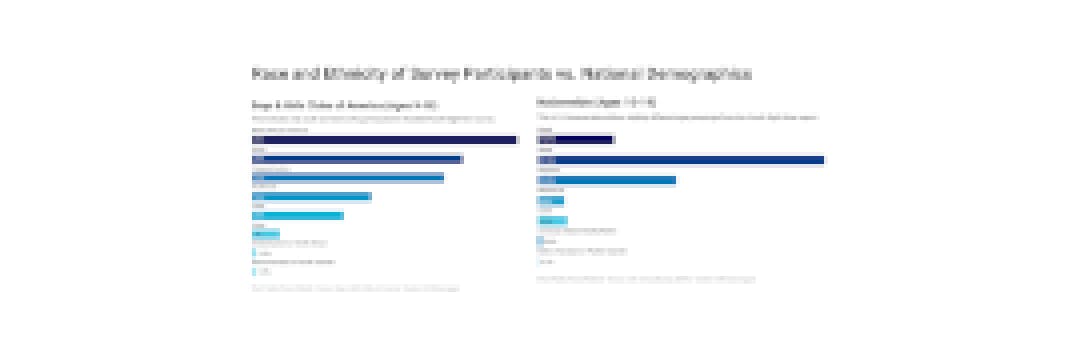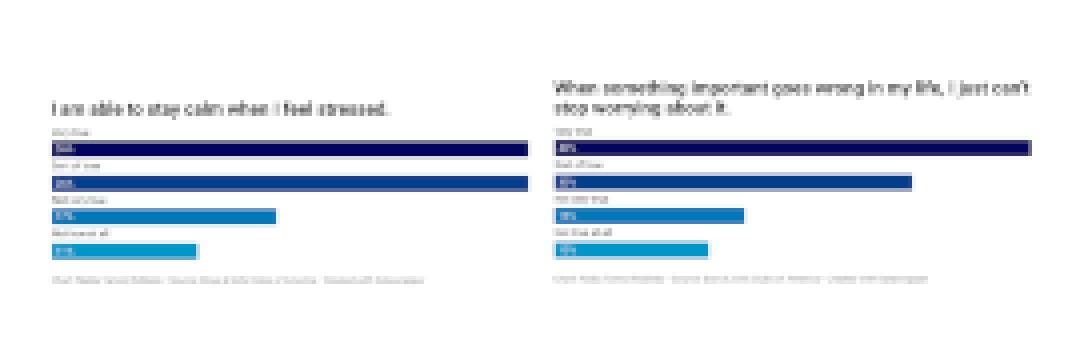There are likely droves of educators who find themselves wishing they could take a peek inside their students’ minds to find out, “What the heck are you thinking?”
Some of those answers were made available last month when the Boys & Girls Clubs of America released its annual survey of kids and teens ages 9 to 18. The organization says that more than 130,000 young people at nearly 3,500 clubs around the country took part in the survey.

While there are generally some limitations when it comes to asking people to rate their own strengths and weaknesses — i.e. the temptation to pick the “right” answer — the survey reveals how kids view themselves and their desires for the future. They were asked to agree or disagree with statements about college and career plans, how they’re faring in school and with their mental health, among other topics.
Life After High School
Educators, employers, policymakers and others have been fretting over enrollment declines at colleges and whether students see the same value in a university diploma as their predecessors. In one recent example, thousands of high school students received a community college admission letter without ever applying in a bid by the State University of New York to attract potential freshmen.
Among the Boys & Girls Clubs of America kids, survey participants overwhelmingly had college aspirations, with 75 percent expecting to continue their education beyond high school.
Thirty percent said they want a bachelor’s degree, and another 26 percent plan to pursue a master’s or other advanced degrees. Amongst the high school seniors, most reported having applied to trade school, community college or a university along with federal financial aid.
The survey also took measure of kids’ interests in science, technology, education and math. Students by and large said they were excited by and successful in math and science, with 47 percent of reporting they agreed or strongly agreed they wanted a STEM career and 52 percent saying they know the “steps a student needs to take if they want to be in a science-related career.”
They also appear to be confident in their knowledge of how to reach their career goals and the accompanying price tag. Among high school juniors and seniors, more than 90 percent said they know what kind of education or vocational training they will need for the jobs they want and how much those plans will cost.
It’s an impressive stat considering the well-documented stressors that grads older than these youngsters who are yoked with student loan debt are facing, like worries about repayment or buying homes.
Despite the positive outlook, only 51 percent of participants in fifth through 12th grade said they were on track to graduate. Twenty-one percent said they were “on track with some risk,” while the remaining 28 percent said they were not on track to graduate from high school.
Are the Kids Alright?
It’s undoubtedly been a stressful few years for kids, and they’re still in the midst of what experts called a national youth mental health crisis. Schools and community groups alike are trying to figure out how to meet the demand for more mental health support among students, and crisis lines have reported an uptick in teens reaching out for help.
But the survey participants generally saw themselves as mentally strong.

About a two-thirds of the kids said it was either “very true” or “sort of true” that they can stay calm when stressed, and nearly half said they know how to calm themselves down.
Around 60 percent of students said it was “very true” that they can identify the emotions they feel and how their feelings influence their actions. Sixty-four percent believe it’s “very true” that they can accomplish most things if they try their best, and about the same amount said they don’t give up on something when they have trouble with a task.
They were also positive when it came to making mistakes. Just over 90 percent said it was either “very true” or “sort of true” that they try to figure out how to do better next time when something important in their lives goes wrong.
However, their responses revealed something more concerning when statements were phrased more negatively.
Forty percent said it was “very true” — and 30 percent said it was “sort of true” — that, “when something goes wrong in my life, I just can’t stop worrying about it.”
Another 38 percent said it was “very true” — 29 percent said it was “sort of true” — that they try to keep people from finding out when something goes wrong in their life.
Cool to Be Kind
Kids reported a fairly sunny outlook on their relationships and communities, responding positively to questions about how they treat others and their feelings about their community.

More than 90 percent said they try to help when they see someone in need or help when “I see someone having a problem.” Another 85 percent said they try to think about how others will be impacted by their decisions, and about the same percentage said they are good at making friends.
More than 80 percent of kids say they believe they can make a difference in their communities.
But on the receiving end of others’ behavior, 40 percent of kids said they had been bullied at school during the past year (62 percent of those students also said they told an adult). Another 18 percent said they had been “electronically bullied,” and those kids were less likely to tell an adult — 45 percent said they did.


